It’s almost Halloween, and what better way to spend October than watching psychological thrillers? If you’re looking for an anime filled with suspense, amazing storytelling, and dynamic characters, Naoki Urasawa‘s 2004 anime series Monster gives us all of these things and more.
Naoki Urasawa’s thriller masterpiece: Monster
It focuses on the life of Dr. Tenma, a brilliant Japanese brain surgeon working at Eisler Memorial Hospital in West Germany, 1986. He’s the hospital’s rising star and engaged to the daughter of the hospital’s director when he’s suddenly faced with a moral dilemma that shakes his core, forcing him to make life-changing decisions. An innocent man dies because Dr. Tenma followed orders to treat a patient of higher social and political status. He is devastated and horrified as the widow confronts him, realizing what following these orders had entailed. This is a huge turning point in his life and the beginning of our story. This moment leads him to make a decision that alters his life in ways he couldn’t even begin to imagine.
The dilemma Dr. Tenma had to face is one that is brought up throughout the entire series: is every life equal? Obviously, the answer is “yes,” and Dr. Tenma tries to convey this time and time again. Starting because of the innocent man dying because he wasn’t deemed as a priority by the hospital, Tenma performs surgery on a boy with a gun shot wound despite receiving orders to treat the mayor first. When Dr. Tenma decides to help this boy, he’s completely unaware that he’s reviving a “monster” and the antagonist of this story. Almost immediately, Dr. Tenma is faced with tragedies and mystery at the hands of this ten-year-old boy.
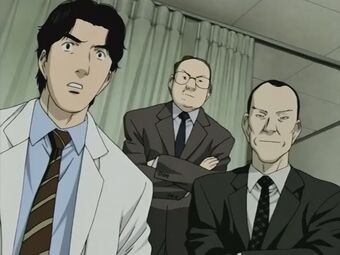
Most of Monster takes place 10-12 years after this point, following a string of murders occurring around Germany. It doesn’t take long before Dr. Tenma is standing face to face with the murderer, who then reveals that he was the young boy Tenma brought back to life ten years prior: Johan Liebert. He shoots Dr. Tenma’s patient right before his eyes and walks away like a true psychopath: cool, calm, and menacingly slow. Thus begins Dr. Tenma’s journey to take Johan down, pulling him out of the shadows and into broad daylight to prevent any more murders from happening. This proves to be no easy task, though, and Dr. Tenma soon discovers there is far more than meets the eye in his journey of rectitude.
The Story
The plot of Monster is intriguing, with a well executed story. The mysteries, plot, and characters are all woven together so seamlessly, and everything made perfect sense as the story progressed, while also managing to surprise at every turn.
The plot is beyond compelling and riddled with depth and intrigue. Urasawa did a great job making the characters three-dimensional and real. These characters weren’t good or bad, or cookie-cutter images of other characters. They were each their own person and brought something unique to the story. They made us reflect, they made us cry, and they made us feel. Every episode brings something new and enthralling. The characters are carefully developed along the way—heroes, villains, and everyone in between.
The Villains
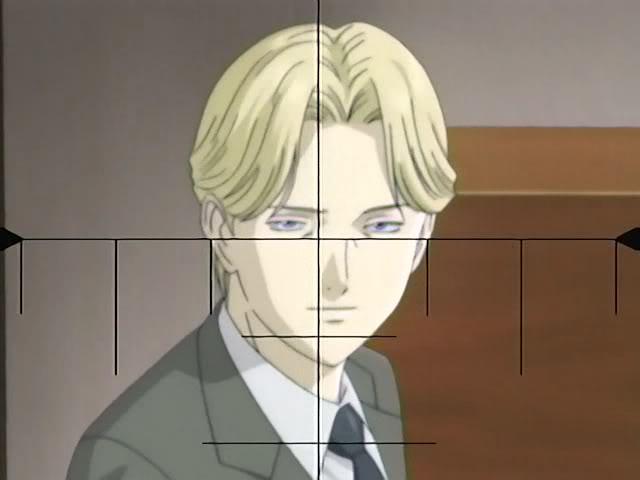
There are a lot of different types of villains in Monster (with the big bad boss being Johan Liebert), which is a big part of what makes this series so great. There’s not just one bad guy and a bunch of lackeys, but multiple villains of all calibers, with various levels of evil versus humanity, none of which are the same. Even Johan’s followers have their own individuality as villains. Each one brings something different to the table, and we tend to hate each of these villains (or love to hate them) for different reasons.
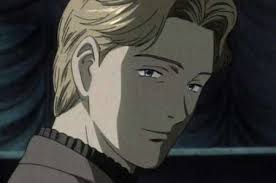
First and foremost, there’s Johan. If you like incredibly eerie, disturbing villains–the calm and collected ones that are secretly serial killers–you’ve come to the right place. Johan’s the main antagonist of this story and Dr. Tenma’s worst nightmare come to life. He constantly taunts the doctor and murders anyone in his way–sometimes for no reason at all other than he simply can. As the show progresses, secrets are revealed and more tragedies occur. We realize just how bad Johan really is and how much he seems to hustle as a villain (seriously, where does he find the time)?
He is easily one of the creepiest villains in all of anime. Everything he does is meticulous, and he can’t interact with anyone without ruining their lives or convincing them they’re useless and unworthy of love, or even life itself. He’s calculated, intelligent, and has no remorse; he knows exactly what he wants to do and will accomplish it at all costs. He isn’t predictable either, which gives the story all the twists and turns it needs to be made even more interesting.
While Johan is the calm, creepy evil mastermind, there are others walking adjacent paths, such as the recurring villain Roberto. This man is so easy to hate, which makes him a good villain in its own way. In contrast to Johan’s insidiousness, Roberto’s more of a brute force/macho man villain that you know can beat the life out of you without breaking a sweat.
While Johan uses mind games to win his wars, Roberto uses his inhuman strength and size to barrel through obstacles and demolish his enemies. He’s seditious and lacks no remorse for his actions, much like Johan. However, he still bows down to Johan and does what he’s ordered to. He also thinks of his own self-indulging antics as well, as seen through his multiple affairs and his toying with people. Part of what makes Johan more evil than Roberto is that Johan seems detached from being human altogether and doesn’t care about following anyone’s plans or desires other than his own.
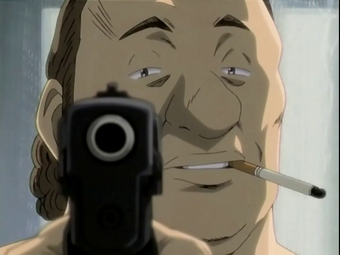
There are many other villains in this series with their own twists on evil as well. Some prove to be more human than what first appears, making their stories even more interesting. This series shows us we’re all human and that there are blurred lines between good and evil. We are then begged to ask the question, “can truly evil people become good in the end?” Questions like these are threaded into the entire show and addressed in ways that make us stop and think.
The Heroes
Where there are mighty villains, there are mightier heroes. No one can watch Monster and not root for Dr. Tenma. He’s the true MVP of the show. He starts out as an up-and-coming doctor paving his way into a bright future and then quickly ends up as an outlaw pursuing a phantom-type serial killer who some people, including Dr. Lunge at the BKA, refuse to believe is a real person. We find ourselves shouting “JOHAN IS NOT IN TENMA’S HEAD!” and rooting breathlessly for the doctor as he runs from the law and those wishing to cause him harm or kill him altogether. It’s hard to not be on edge as the doctor pursues Johan and debates whether or not he should take away the life he gave to Liebert a decade prior.
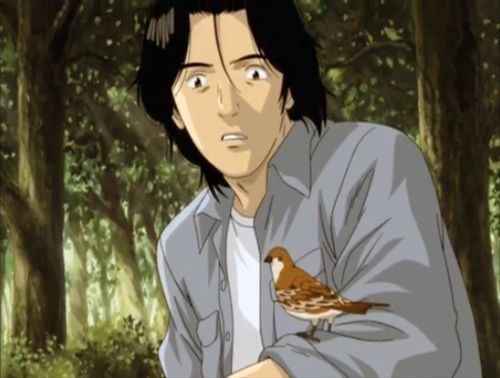
Something endearing about Dr. Tenma is that no matter how much trouble he’s in, he always stops to help someone in need, even if it’s someone who actively fights against him. This is one of the ways he shows that he truly does believe all lives are equal. He doesn’t pick and choose who he will save or give any type of medical attention to. He gives it to anyone who needs it, even if it gets him in trouble.
Parallel to Dr. Tenma on the quest to take down Johan is Johan’s twin sister, Nina Fortner (a.k.a. Anna Liebert). She and Johan grew up together until shortly after they were sent to the hospital the night Dr. Tenma treated Johan for his gunshot wound. After that, Anna became Nina and grew up in a nice home with adoptive parents who loved her, along with a memory problem blocking out any recollection of her childhood. That is, until Johan shows up again when they turn twenty. Then Nina’s life crumbles down around her, and the memories she suppressed start breaking through.
Nina is a phenomenal character; she’s strong, she’s intriguing, and she’s one of the most relatable characters on the show. On top of all this, she and Tenma always have each other’s backs, even if they aren’t always in the same place. They follow their own paths toward Johan but often cross each other’s on the way and always take care of one another. Having their individual journeys also allows them to grow in the ways they need to as characters, causing them to reflect on what they want and whether they should kill Johan or let him live.

Nina has her own internal struggles as she strives to remember suppressed memories–memories that could help stop Johan and bring justice to those who suffered at the sins Johan so frivolously committed. She and Dr. Tenma also develop a strong bond, showing they truly care about one another, which adds to the emotional depths of the characters and of the anime as a whole.
There are many more heroes in the show as well (mostly supporting characters, as there are definitely more villains than heroes in this story), but one of the biggest in this story is an anti-hero that grows on you in short order: Wolfgang Grimmer. This brings us to the anti-heroes.
The Anti-Heroes
As we touched on earlier, this anime makes us think about the line between good and bad. What makes a person a “good person” or a “bad person”? Sometimes someone is just plain evil, but most of the time the lines blur between good or bad and right or wrong. It’s no secret that the main anti-hero in this series, Wolfgang Grimmer, is a good man. However, since some of what he does is outside the law and questionable, he is more of an anti-hero. Essentially, he is an edgy, unconventional hero.
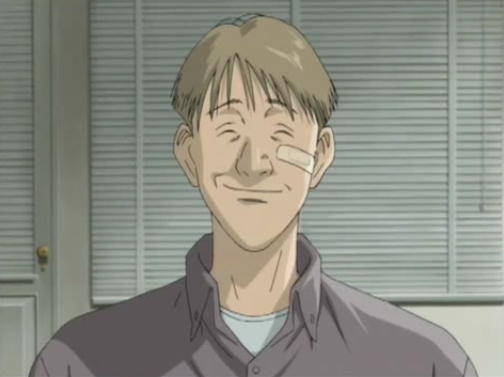
Grimmer and Tenma both live outside the law during the series, and they come to help each other out from time to time. However, Grimmer has his own skin in the game and has a past that overlaps with Johan’s. Due to his inner demons and past traumas, he struggles to connect with people, suffering from the inability to feel emotions like a normal person—something taken from him earlier in life.
However, he paves a new future for himself while saving the victims around him, one person at a time. Without a life of his own to go back to, Grimmer chooses to live as a sort of vigilante, aiming to take down the corruption around him from the inside in ways he wouldn’t be allowed to otherwise. Much of Grimmer’s past is revealed as the story unfolds, and he easily becomes one of the series’ best characters.
Finally, there’s Detective Lunge of the BKA. He is both an antagonist and an anti-hero in this story. We start off hating him and end up praising him and rooting for him as he shifts and grows, developing as both a character in Tenma’s life and as a functional human in his personal life. He and Eva Heinemann, Tenma’s former fiancée, show the starkest personal growth in the series as they go from antagonist to ally and turn their lives around by the end.
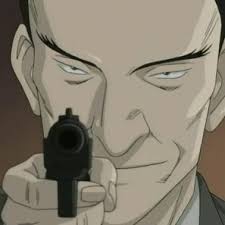
Lunge is one of those characters we both can’t stand but are also intrigued by (much like Johan). He is incredibly frustrating at times, as he’s actively trying to track down Dr. Tenma with the intent of locking him up, but he’s also vital to the series and his arc really adds to the show, especially in the end.
Conclusion
These points only begin to brush the story that is Monster. If you’ve never seen it, or if it’s been a while since you’ve watched it, this is a great time to dive right into it. It’s the perfect anime to watch leading up to Halloween, riddled with suspense, serial killer frights, and gruesome secrets. Don’t be overwhelmed by its 74-episode length, either—it’s both well-paced and addictive. It’s one of the best psychological anime out there, with characters to either vehemently root for or despise completely. It’s a masterpiece that should be visited time and time again.
Want more reviews of the latest anime, manga, and light novels? Follow us on Twitter or come talk to us on Discord!



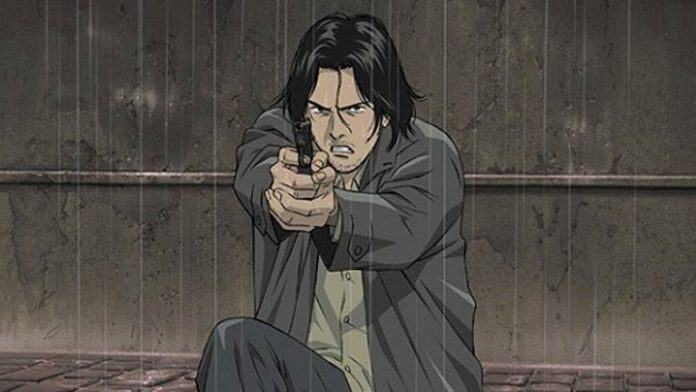



[…] © Jotaku Network […]
[…] © Jotaku Network […]